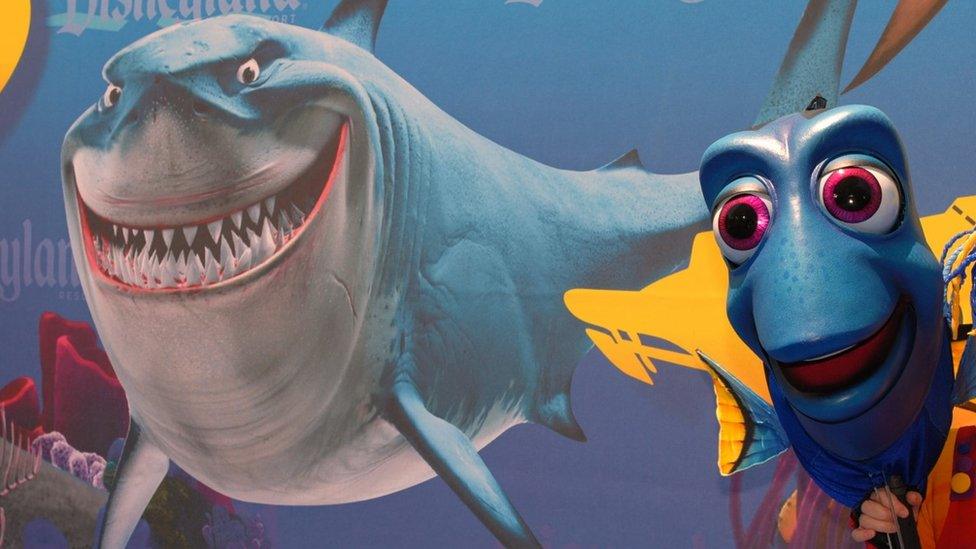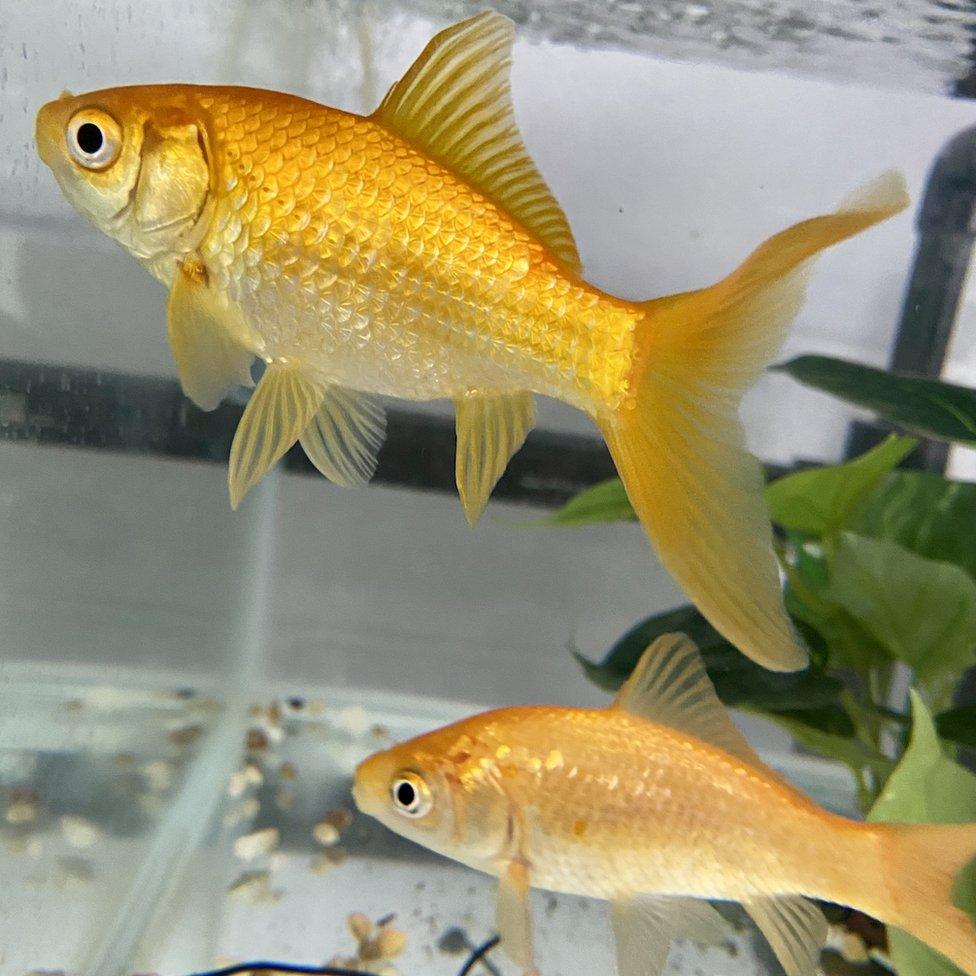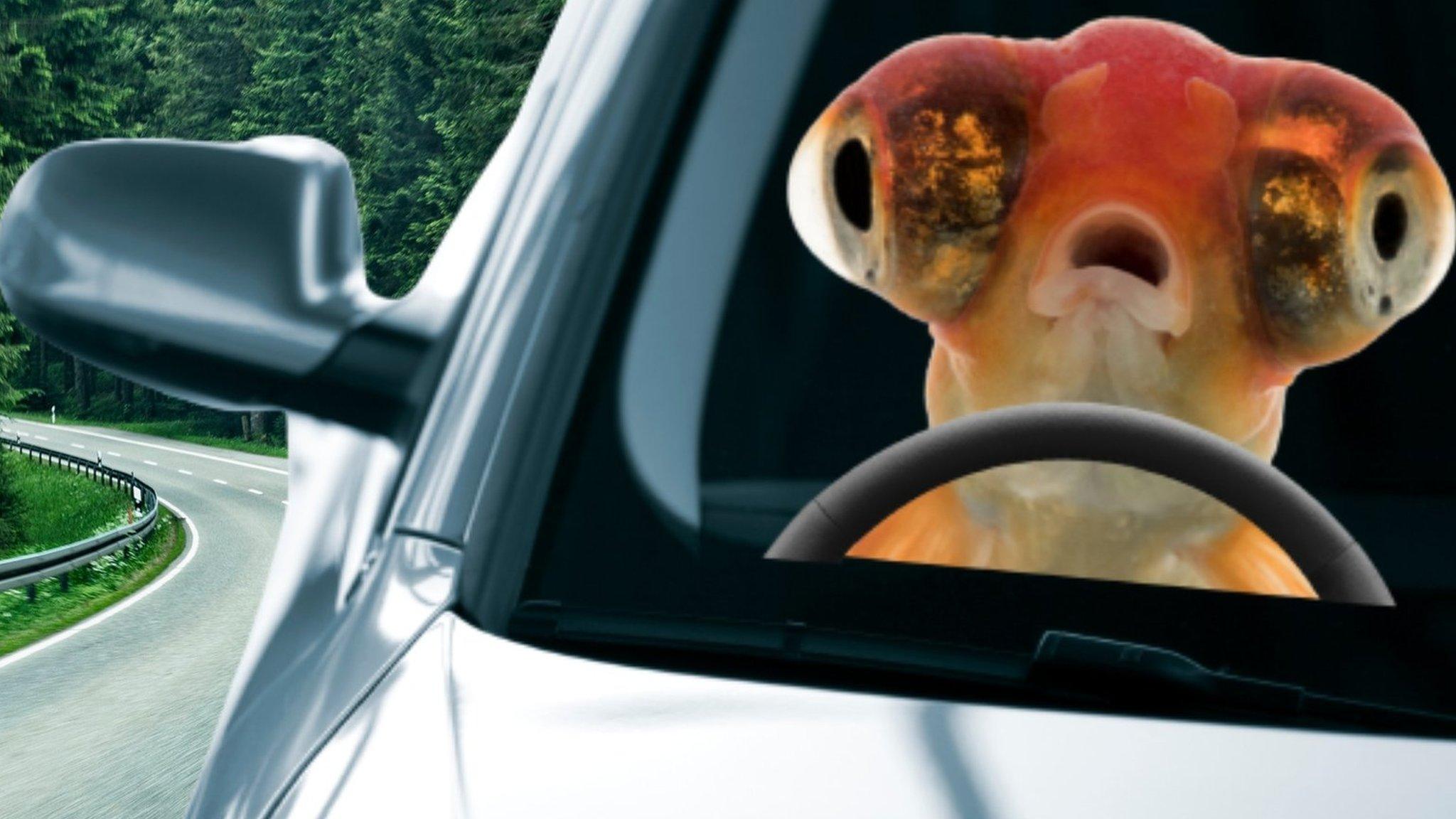Oxford University: Goldfish do have good memories, scientists find
- Published
Not so dumb after all - researchers proved goldfish have good memories and can navigate their surroundings
Scientists have proved goldfish do have good memories and are able to navigate their surroundings.
A team from Oxford University trained nine fish to travel 70cm (2.3ft) and back, receiving a food reward at the end.
Researchers said it showed the fish could accurately estimate distance.
The study disproves the long-held belief goldfish have little or no memory.

In Disney's Finding Nemo, the fish Dory was portrayed as having no memory whatsoever
The university's department of biology scientists wanted to find out if fish have ways of navigating similar to land-based animals.
They used a narrow tank covered with a repeating pattern of vertical stripes every 2cm.
On reaching the set distance, the fish were prompted by an external cue - such as a researcher waving their hand - to turn around and swim back to the start position.
The researchers then tested if the fish would swim the same distance if the starting position was changed and the cue was removed
They also tested if goldfish would swim the same distance when the background pattern was altered.
They found eight of the nine fish accurately remembered when to turn back to get their reward of food, without being prompted.

Two of the nine goldfish used in the experiment which proved they do have good memories
The fish also continued to swim the correct distance even when their start position was shifted forwards.
According to the researchers, the results indicate that goldfish estimate distances by looking for the apparent motion of patterns in their environment, called optic flow.
They said many terrestrial species are known to use optic flow to estimate distance, but goldfish appear to process the information differently.
Terrestrial animals, including humans and honey bees, estimate distances by measuring how the angle between their eye and surrounding objects changes as they travel.
Goldfish appear to use the number of contrast changes experienced en-route, the researchers said.

Follow BBC South on Facebook, external, Twitter, external, or Instagram, external. Send your story ideas to south.newsonline@bbc.co.uk, external
Related topics
- Published13 January 2022
